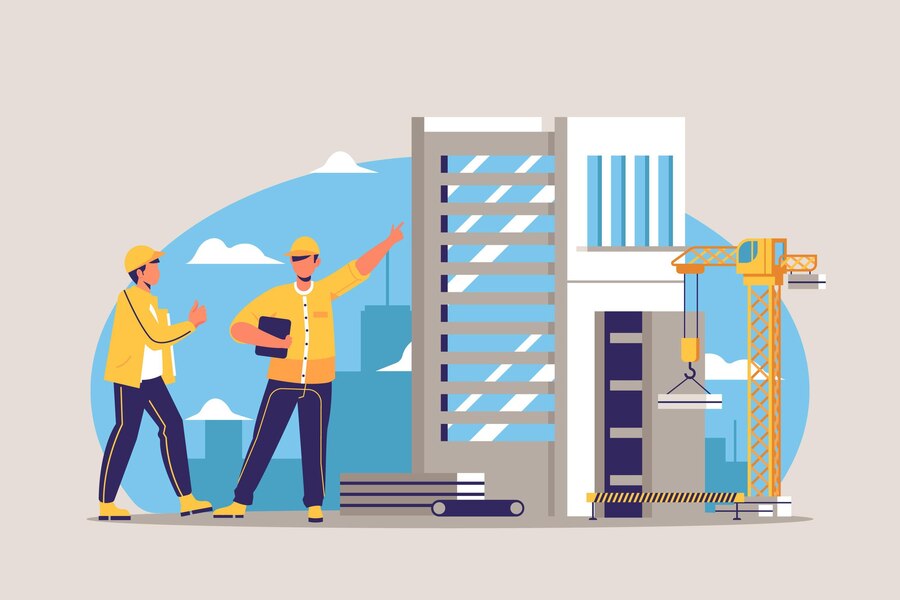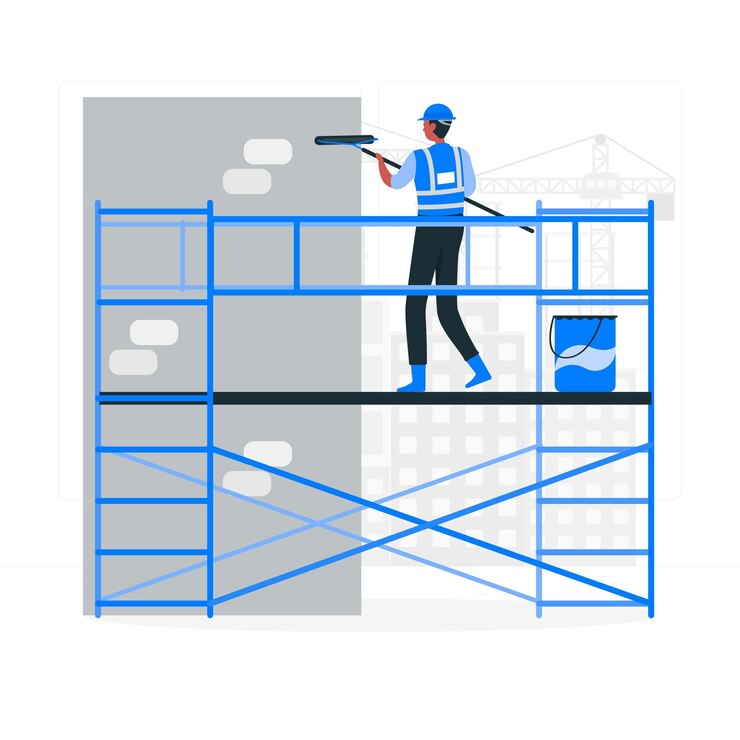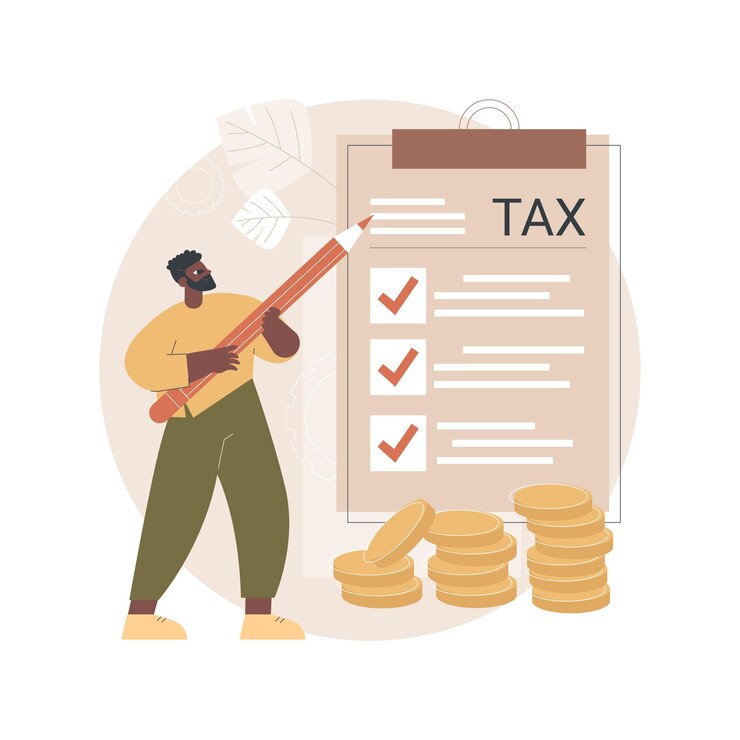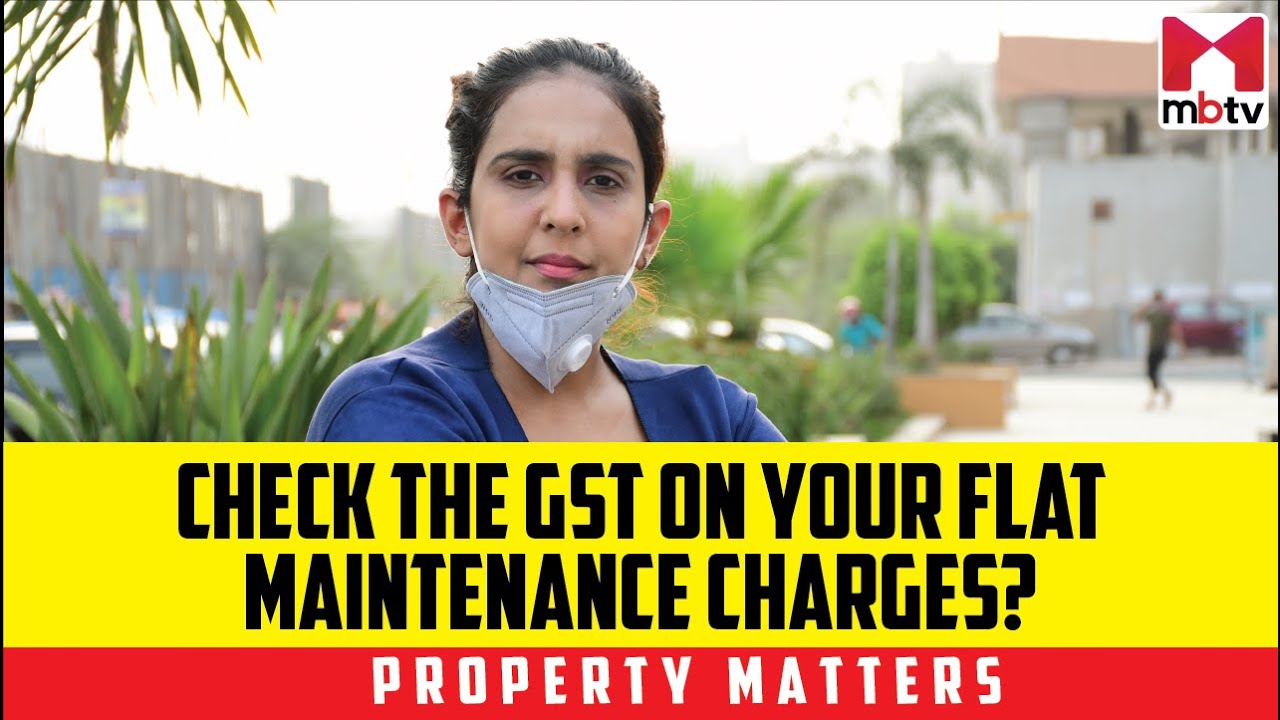Is GST applicable on maintenance charges collected by builders?
- 19 Aug 24
- 21 mins

Is GST applicable on maintenance charges collected by builders?
- GST on Maintenance Charges by Builders
- Applicability of GST on Maintenance Charges
- Calculation of GST on Maintenance Fees
- Elements of Maintenance Charges on Flats Eligible for GST
- Breakdown of Eligible Charges
- Examples of Non-Eligible Charges
- Detailed Look at GST on Monthly Maintenance Charges
- What is input tax credits?
- How Flat Owners can Benefit from ITC?
- Impact of GST on Flat Owners and Resident Welfare Associations (RWAs)
- Legal Framework and Compliance with GST
- Challenges and Issues with GST in Building Maintenance
- Tools and Resources for Managing GST
- Conclusion
Key Takeaways
- GST is applicable on monthly maintenance charges if a housing society's turnover exceeds Rs. 20 lakhs (Rs. 10 lakhs for special category states).
- RWAs can claim an input tax credit on GST paid for goods and services used in providing maintenance.
- Maintenance charges for flats used for commercial purposes are not exempt from GST.
- The current GST rates for construction are 5% for non-affordable and 1% for affordable housing, without input tax credit.
- GST is not applicable to the sale of completed residential houses that have received a completion certificate or are first occupied.
Goods and Services Tax (GST) has significantly altered the fiscal landscape in many sectors, including real estate. Understanding its impact on residential maintenance charges is crucial for flat owners and Resident Welfare Associations (RWAs). This article delves into the nuances of GST as it applies to building maintenance, offering clarity and guidance for homeowners and societies.
GST on Maintenance Charges by Builders

GST on maintenance charges is a reality that flat owners need to understand. We'll explore the legal framework that dictates these charges, including the GST rates applicable and the calculation methods used by societies.
The implementation of Goods and Services Tax (GST) in India has had a significant impact on various sectors, including real estate and housing society charges. When it comes to maintenance charges collected by housing societies or Resident Welfare Associations (RWAs), GST applies under certain conditions.
Maintenance charges typically include costs related to common area upkeep, elevator service, water connection charges, parking charges, and security. These charges can attract GST if they exceed a certain threshold, bringing additional financial implications for homeowners.
Applicability of GST on Maintenance Charges
- GST is applicable to maintenance charges if the total turnover of a housing society exceeds the threshold limit, which is currently set at turnover upto Rs. 20 lakhs per annum (Rs. 10 lakhs for special category states). If a society's turnover is below this threshold, it is not liable to register for GST and thus cannot charge GST on maintenance fees.
Calculation of GST on Maintenance Fees
For societies that exceed the turnover threshold and are required to charge GST, the current rate applied is 18%. This rate applies to all services and goods that fall under the maintenance charges, including repair work, building upkeep, common area maintenance, and utility charges. The GST is calculated on the total amount of maintenance fees collected from the residents.
- Input Tax Credit (ITC) for Societies
One of the advantages of GST for housing societies is the ability to claim Input Tax Credit (ITC). Societies can claim ITC on the GST paid on goods and services used for maintenance purposes. This can include repairs, renovations, and other services where GST has been paid. The ITC can be used to offset the GST liability of the society, potentially reducing the overall cost of maintenance charges to the residents.
- Impact on Residents
For residents, the application of GST on maintenance charges means an increase in the monthly amount paid towards society's upkeep. However, the benefit of ITC to society can help keep these increases to a minimum. It's important for residents to understand how their payments are being utilized, the transparency in the application of GST, and the input tax credit claims made by society.
- Compliance and Challenges
Compliance with GST regulations requires societies to maintain accurate records of all transactions, issue GST-compliant invoices, and file GST returns timely. This can be challenging, especially for smaller societies that may not have the resources or expertise to manage these requirements effectively.
Overall, while GST on maintenance charges introduces additional compliance requirements for housing societies, it also provides mechanisms like ITC to mitigate the financial burden on residents. Both societies and residents need to be well-informed about their rights and obligations under GST to ensure smooth and efficient management of maintenance charges.
Elements of Maintenance Charges on Flats Eligible for GST

In housing societies or residential complexes, maintenance charges are collected from residents to cover the costs associated with the upkeep of common areas and facilities.
With the introduction of the Goods and Services Tax (GST) in India, certain components of these maintenance charges are subject to GST if the total turnover of the society exceeds the prescribed threshold.
Knowing which elements of maintenance charges are eligible for GST is important for both the housing society management and the residents to ensure compliance and proper budgeting.
- Common Area Maintenance
GST is applicable on the fees collected for the maintenance of common areas within a residential complex. This includes cleaning, gardening, electricity for common areas, security, and the upkeep of amenities like clubhouses, swimming pools, and gyms. These supplies of services are considered taxable supplies under GST.
- Repair and Renovation Services
Any repair work or renovations done on common property areas (such as lobbies, elevators, and staircases) that the society undertakes also attract GST. The materials and services purchased for these activities are taxable, and hence, the charges passed on to the residents include GST.
- Utility Charges
While individual utility bills (such as those for personal water bills and electricity usage that utility companies bill residents directly) are not subject to GST through the society, any utility charges gathered as part of the maintenance fee for services provided in common areas or shared services are GST applicable. This includes water purification, sewage treatment, and other similar services.
- Sinking Fund
GST is applicable to contributions made to the society's sinking fund, which serves as a reserve to pay for significant repairs and replacement costs in the future. This ensures that when the funds are utilized for eligible services, the GST implications are correctly handled.
- Non-occupancy Charges
Non-occupancy charges, which are levied on flats that are not occupied by the owner but are instead rented out, are also subject to GST. This is because these charges are considered a service provided by society to the non-occupying owners.
- Insurance Charges
The portion of the maintenance bill that covers the premium for insuring the building and common facilities is eligible for GST. This is because insurance services are taxable under GST.
- Cultural and Recreational Activities
Any fees collected specifically for organizing cultural, recreational, or entertainment events within the society premises are liable for GST, as these are considered as services provided to the residents.
Breakdown of Eligible Charges
When it comes to the application of Goods and Services Tax (GST) in the context of residential housing societies, it is essential for both the managing bodies and the residents to understand which components of the maintenance charges are eligible for GST.
Here’s a detailed breakdown of the typical charges included in housing society maintenance fees that are subject to GST, provided the society's annual revenue exceeds the exemption threshold:
- Common Area Maintenance
- Cleaning and Housekeeping: Charges for the cleaning of common areas like lobbies, corridors, and gardens.
- Security Services: Fees for security guards, surveillance systems, and other security measures.
- Electricity for Common Areas: Charges for lighting and running electrical equipment in common areas.
- Lift Maintenance: Includes routine servicing, repairs, and any emergency call-outs.
- Gardening and Landscaping: Costs involved in maintaining green spaces within the society premises.
- Repair and Maintenance
- Structural Repairs: Repair work on common structures such as roofs, walls, and foundations.
- Painting of Common Areas: Periodic painting and aesthetic maintenance of exteriors and common indoor areas.
- Plumbing and Electrical Systems: Maintenance and repairs of common plumbing and electrical systems.
- Utility Charges
- Water Supply: Charges for maintenance of pumps, treatment plants, and common water supply systems.
- Sewerage Services: Maintenance of shared sewer systems and treatment facilities.
- Sinking Fund
- Contributions to a reserve fund used for significant repairs and replacements in the future.
- Insurance Premiums
- Building Insurance: Covers the building and common infrastructure against damage or destruction.
- Public liability insurance protects society from claims of personal injury or property damage by outside parties while on its property.
- Non-occupancy Charges
- Apartments with a rented tenant but no owner are subject to additional fees.
- Clubhouse and Recreational Facilities
- Maintenance and operation charges for facilities such as gyms, swimming pools, sports courts, and clubhouses.
- Cultural and Community Event Fees
- Fees collected for organizing and hosting cultural events, festivals, and community gatherings within society.
- Administration Charges
- Charges related to the administration and management of the society, including accounting, management staff salaries, and office supplies.
Examples of Non-Eligible Charges

While many maintenance-related charges are subject to the Goods and Services Tax (GST), there are certain components of these charges that are exempt from GST. Understanding which charges do not attract GST helps societies in proper accounting and provides clarity to residents about their payment obligations.
Here are some examples of non-eligible charges for GST in a housing society's maintenance fees:
- Property Tax: Payments made towards property taxes are not subject to GST as they are direct taxes paid to the municipal corporation or local government.
- Water Tax: Similar to property tax, water tax is a local government levy that is not subject to GST.
- Municipal Charge: The GST does not apply to any additional municipal fees that local governments impose, such as sewerage taxes and garbage collection charges.
- Individual Utility Charges Paid Directly to Providers: Charges for utilities like electricity and water, when billed directly to the residents by the utility providers (not the society), are exempt from GST within the society’s maintenance bill.
- Penalties and Late Payment Fees: Penalties or late fees charged for delayed payment of maintenance dues are not subject to GST. These are considered penal in nature and not as a payment for a supply of goods or services.
- Interest on Sinking Fund or Reserve Fund: Interest earned on sinking funds or reserve funds, which are maintained in a bank, does not attract GST, as it is not a charge but an earning.
- Member-to-Member Services: According to the society's maintenance fees, any services provided directly by one member to another without involving the society's administration (such as tutoring, personal training, etc.) are not subject to GST.
- Transfer Fees: Fees for changing official records and not for providing any goods or services, such as the transfer of ownership of a flat from one person to another, are not subject to GST.
- Donations: Voluntary donations made to the society that are not tied to any specific service or benefit provided by the society are also not subject to GST.
Detailed Look at GST on Monthly Maintenance Charges
The implementation of the Goods and Services Tax (GST) on monthly maintenance charges in housing societies involves a nuanced understanding of how this tax is applied and what it means for both the society management and the residents. Here, we explore the specifics of GST application on these charges, the rate of tax applicable, and the implications for the residents.
- Applicability of GST on Monthly Charges
GST is levied on monthly flat maintenance charges if the annual turnover of the housing society exceeds the threshold limit set by the government, which is currently Rs. 20 lakhs for most states and Rs. 10 lakhs for special category states. Once this threshold is crossed, the society must register under GST and charge GST on the maintenance fees collected from its members.
- Rate of GST on Maintenance Charges
The Builder Charge standard GST rate on the monthly maintenance fees is 18%. This rate encompasses most of the services provided by the society, including repair and maintenance of common areas, security services, swimming pool maintenance, clubhouse facilities, and other amenities.
- Calculation of GST on Monthly Charges
To understand how GST is calculated on monthly maintenance service charges, consider the following example:
Suppose the monthly maintenance charge is Rs. 5,000 per flat.
If the society is registered under GST and the services qualify for GST charges at 18%, the GST charged would be 18% of Rs. 5,000, which amounts to Rs. 900.
Therefore, the total amount payable by each resident would be Rs. 5,900 per month.
This calculation must be clearly mentioned in the monthly bills provided to the residents to ensure transparency.
- Inclusion of GST in the Bill
The GST amount must be clearly itemized in the maintenance bill issued to each resident. This not only helps in maintaining transparency but also assists residents in understanding how much tax they are paying and for what services.
- Input Tax Credit (ITC) Benefits
One of the significant advantages of GST for registered societies is the ability to claim Input Tax Credit (ITC). Societies can claim ITC on the GST paid on goods and services used for the maintenance of the society. This can include GST paid on repair services, construction materials, security services, and more. The benefit here is that the ITC can offset the GST liability on the maintenance charges, potentially reducing the amount of GST that needs to be passed on to the residents.
- Documentation and Compliance
For societies registered under GST, compliance involves meticulous documentation and timely filing of returns. Proper invoices from vendors, accurate billing to residents, and regular reconciliation of GST payments and credits are essential for compliance.
- Impact on Residents
For residents, the inclusion of GST in their maintenance bills means an increase in their monthly outgoings. However, the benefit of ITC to society can mitigate this impact to some extent. It's important for residents to be aware of these details, which should ideally be discussed in society meetings and reflected in the society's financial statements.
What is input tax credits?

Input Tax Credit (ITC) refers to the mechanism in the Goods and Services Tax (GST) system that allows businesses, including housing societies, to reduce their tax liability by claiming credit for the tax paid on purchases of goods and services used for the business.
This feature is crucial as it helps to avoid the cascading effect of taxes, where tax is paid on tax, throughout the supply chain.
- Concept of Input Tax Credit
ITC is based on the principle that tax should be paid only on the value addition at each stage of the supply chain. By offsetting all other taxes paid during purchases against the GST liabilities on sales, it ensures that the end-consumer is responsible for paying the GST levied by the last dealer in the supply chain.
Eligibility for Claiming ITC
To claim ITC, there are certain conditions that must be met:
- The buyer must have a tax invoice or debit note issued by a registered supplier.
- The goods or services purchased must be used for business purposes.
- The buyer must have received the goods or services.
- The supplier must have actually paid the government the tax levied in relation to such a purchase.
- The buyer must have filed GST returns.
How ITC Works?
- For example, if a housing society incurs an expense where GST is paid, say for repair services or purchasing cleaning materials, it can claim the GST paid on these services as ITC. This ITC can then be used to offset the GST liability on the society’s taxable supplies, such as maintenance charges collected from residents.
Benefits of ITC
The primary benefit of ITC is the reduction in the overall tax cost for the entity claiming it. For housing societies, this means that the GST paid on inputs (services and goods purchased) can be set off against the GST collected from residents on maintenance charges, effectively lowering the amount of GST that needs to be paid to the government. This can lead to a direct financial benefit to the residents, as the society may pass on these savings to them in the form of lower maintenance charges.
Documentation for ITC
Maintaining proper documentation is crucial for claiming ITC. This includes keeping all tax invoices, receipts, and other relevant documents. These documents serve as proof of the tax paid and are essential for filing accurate GST returns.
Limitations and Conditions
There are certain restrictions and conditions under the GST law regarding the utilization of ITC. For instance, ITC cannot be claimed on personal use or for goods and services that are exempt from GST. Also, if invoices are not paid within a specified period (generally 180 days), the claimed ITC will be reversed.
How Flat Owners can Benefit from ITC?
Input Tax Credits (ITC) are a crucial component of the Goods and Services Tax (GST) framework that can significantly benefit flat owners in a housing society. By understanding and effectively managing ITC, societies can reduce the amount of GST paid on maintenance charges, ultimately benefiting the members financially. Here’s how flat owners can benefit from the application of ITC:
- Reduced Maintenance Charges
When a housing society utilizes ITC effectively, it can offset the GST payable on the maintenance charges collected from residents. For example, if the society pays GST on security services, repair work, or any other taxable service used for the maintenance of common areas, these GST payments can be claimed as ITC. The ITC can then be used to reduce the GST liability arising from the collection of maintenance fees, potentially lowering the overall maintenance charges for residents.
- Improved Cash Flow
Effective utilization of ITC can improve the cash flow for society, which in turn benefits the residents. With reduced GST liabilities, the society might have more funds available for other maintenance activities or improvements within the complex without needing to increase maintenance charges.
- Enhanced Property Value
A well-maintained property with affordable flat maintenance costs can enhance the overall value of the property. Efficient use of ITC helps in maintaining the property better and keeping it attractive, which is beneficial for current owners and can also attract potential buyers.
- Transparency and Trust
Societies that effectively manage and transparently report their ITC claims foster greater trust among residents. This transparency shows that society is actively working to manage costs and pass the benefits on to the flat owners, which can lead to higher satisfaction and a more harmonious residential community.
- Better Compliance and Reduced Legal Risks
Using ITC correctly also ensures that society remains compliant with GST regulations. Compliance reduces the risk of legal issues and penalties related to incorrect GST filings, which could impact society’s finances and subsequently increase costs to residents.
- Educational Benefit
Understanding how ITC works and seeing it applied effectively helps residents become more knowledgeable about GST. This knowledge can be beneficial if residents have their own businesses or for personal tax management.
- Incentive for Timely Payments
Societies might encourage timely payment of maintenance charges by highlighting how prompt payments help in effective cash flow management, which is essential for maximizing the benefits of ITC. This can lead to better financial stability for society and continued benefits from reduced GST costs.
Impact of GST on Flat Owners and Resident Welfare Associations (RWAs)
| Impact Type | Description | Examples/Details |
|---|---|---|
| Short-Term | Adjustment to Increased Costs | Initial rise in maintenance charges due to GST application. |
| Compliance and Administration | RWAs need to understand and implement GST requirements, update billing systems. | |
| Long-Term | Financial Health of Societies | Potential savings through Input Tax Credits (ITC); stabilization of maintenance costs. |
| Property Value and Marketability | Improved maintenance and infrastructure can increase property values and appeal to buyers. | |
| Education and Awareness | Increased understanding of GST leads to better financial governance. |
If a housing society contributes more than Rs. 7500 per member per month to the Resident Welfare Association (RWA), they must pay 18% GST.
Legal Framework and Compliance with GST
The legal framework and ensuring compliance with the Goods and Services Tax (GST) is crucial for housing societies, especially those whose annual turnover exceeds the minimum threshold set for GST registration. Here’s a streamlined overview:
- GST Registration
- Threshold for Registration: Housing societies need to register for GST if their annual revenue from taxable supplies exceeds Rs. 20 lakhs (Rs. 10 lakhs for special category states).
- Voluntary Registration: Societies can also choose to register voluntarily to avail benefits like input tax credit.
- Compliance Requirements
- Invoicing: Societies must issue GST-compliant invoices for maintenance charges that include GST.
- Filing Returns: Regular GST returns must be filed (monthly, quarterly, and annually), detailing all taxable transactions.
- Record-keeping: Accurate records of all transactions must be maintained to support claims such as input tax credits.
- Input Tax Credit (ITC)
- Eligibility: Societies can claim ITC on GST paid on goods and services used for maintenance and repair activities, which can significantly reduce the net GST liability.
- Conditions for Claiming ITC: ITC can only be claimed on invoices that comply with GST regulations and are used for business purposes.
- Penalties for Non-compliance
- Failure to comply with GST regulations can lead to penalties, interest charges, and other legal repercussions, underscoring the importance of diligent financial management and compliance.
- Ensuring compliance with GST not only helps in legal conformity but also aids in the effective financial management of society, promoting transparency and trust among residents.
Challenges and Issues with GST in Building Maintenance
Implementing GST in building maintenance involves several challenges and issues for housing societies and Resident Welfare Associations (RWAs). Here’s a concise look at the key difficulties:
- Compliance Complexity
GST Laws: Societies often struggle with the complexities of GST regulations, including rates, exemptions, and compliance requirements.
Regular Updates: Keeping up with frequent changes and updates in GST laws can be demanding.
- Input Tax Credit (ITC) Management
Eligibility Confusion: Determining which expenses are eligible for ITC can be confusing, leading to underutilization or errors in claims.
Documentation: Maintaining proper invoices and records to support ITC claims is challenging but necessary for compliance.
- Financial Burden
Increased Costs: Initial application of GST can increase the overall maintenance charges due to added tax, affecting the affordability for some residents.
Cash Flow Issues: Delay in ITC claims can lead to cash flow problems, especially for larger expenses.
- Administrative Overhead
GST Filing and Payments: Regular GST filings and tax payments require administrative effort and can be burdensome for societies not equipped with professional help.
Tools and Resources for Managing GST
Pice business payment app can significantly reduce the burden of GST management for housing societies, ensuring that they remain compliant with the tax laws while efficiently managing their financial obligations and assisting in managing GST compliance effectively.
Conclusion
This article has explored the intricate details of GST as it applies to building maintenance, providing a comprehensive guide for homeowners and RWAs. The clarity gained here should empower stakeholders to navigate GST regulations confidently and optimize their financial strategies.
💡Facing delays in GST payment? Get started with PICE today and streamline your GST payments. Click here to sign up and take the first step towards hassle-free GST management.



















